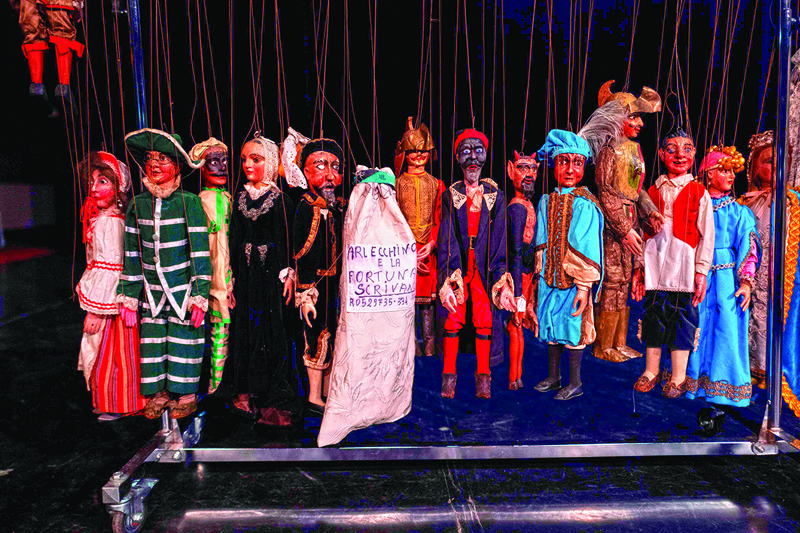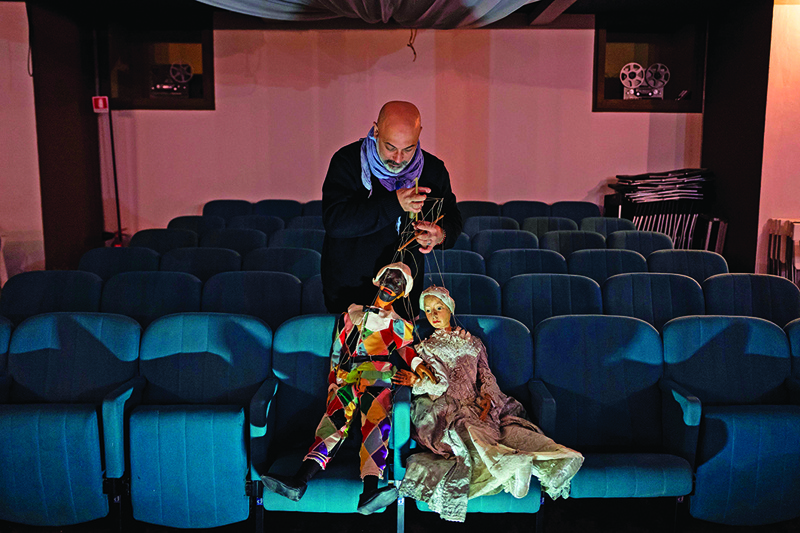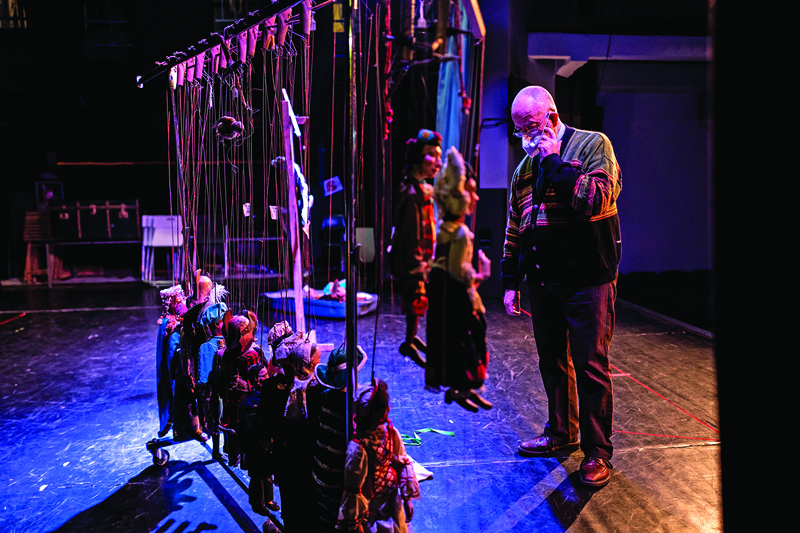
Augusto Grilli's eyes still light up when he recalls receiving the little theatre and 12 puppets almost 75 years ago, a childhood gift that sparked a career and a lifelong passion. "It was in 1946, the first Christmas after the war, a moment of celebration, of joy-a very special atmosphere," recounted the elegantly-dressed Italian, now 80. "I woke up and among the gifts from 'Baby Jesus' was a big box containing a theatre and puppets. It was love at first sight."
He turned out to have a talent for marionettes-puppets with strings-and soon became something of a star in his school in Turin, northern Italy. "I used to put on a show, they made me go to all the classes in primary school because the children had so much fun," he told AFP. But while he was happy to show off his toys, "no child was allowed to touch them", Grilli said: "The theatre was always a sacred place."
A family affair
The little gold and white theatre is today carefully preserved in one of the countless plastic boxes waiting to be taken to the new International Puppet Museum. A long-time dream of Grilli and his wife Mariarosa, 78, the museum is due to open in 2023 in Turin, financed both privately and publicly with the help of different institutions. The Grilli family has a collection of more than 20,000 objects from around the world, everything from theatres, marionettes and glove puppets to shadow figures and silhouettes. There are around 2,000 from Asia, and some of the items date back to the 18th century.
As well as hosting exhibitions, the museum will put on shows in a 120-seat theatre, hold restoration workshops and maintain an archive. The couple came up with the idea 20 years ago but have finally brought it to fruition with the help of their son Marco, himself a puppeteer. "We want to set up a foundation so that this heritage is protected," Grilli said, to ensure that "the tradition is not lost".

Marco Grilli holds two puppets in the parterre at the " Alfa Theatre" in Turin. 
Augusto Grilli checks his puppets on the stage at the " Alfa Theatre" in Turin.
Mozart and Rossini
Puppetry has a rich history in both Asia and Europe, taking many different forms on both small and big stages-but Grilli warns it is becoming a lost art form. Before World War II, he says, Italy had around 40,000 companies of puppeteers, but afterwards, there were just 7,000. "Today, there are only two or three puppeteers working with string puppets and 400 or 500 working with hand puppets-but only 10 to 20 are worth seeing," he said. Initially, for Grilli, it was just a hobby.
Due to what he calls "paternal demands", he studied mechanical engineering and kept the puppets to show friends. But in 1978, he took the leap and went professional, putting on shows for children and adults alike, including lyrical works such as Mozart's "The Magic Flute" or Rossini's "The Barber of Seville". "It's impossible to describe how I feel when I'm on stage, it's so profound. The puppeteer is part of the puppet, which is itself part of the puppeteer," he enthused. In his tiny workshop near Alfa Teatro, the theatre he opened aged just 30 with his wife, Grilli works on his precious puppets.
A drawer is filled with heads, while hundreds of eyes look out from an old wooden box. "The puppets get damaged when they are used," he explained, pointing to a ripped shoe. His son Marco has lived and breathed this magical world since childhood, and at 14 put on his first public show. Now 47, he has sought to carve out his own path by using hand puppets, and in 2010 was crowned the best in his field in Italy.
He says puppetry is about "entertainment and expression of the childish part of all of us, and our desire to keep playing". "It's also the pure expression of an actor who sacrifices his ego to pass the emotions onto the puppets," he said. "When you enter this world, you can't let go," he added, saying he was keen to "carry the puppet concept into the future". - AFP











